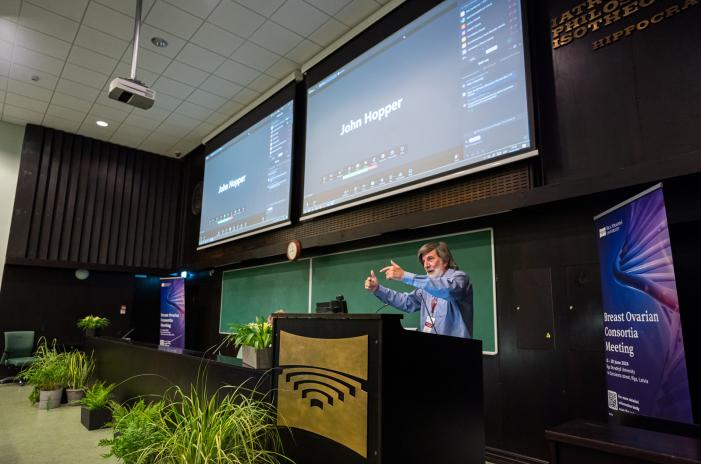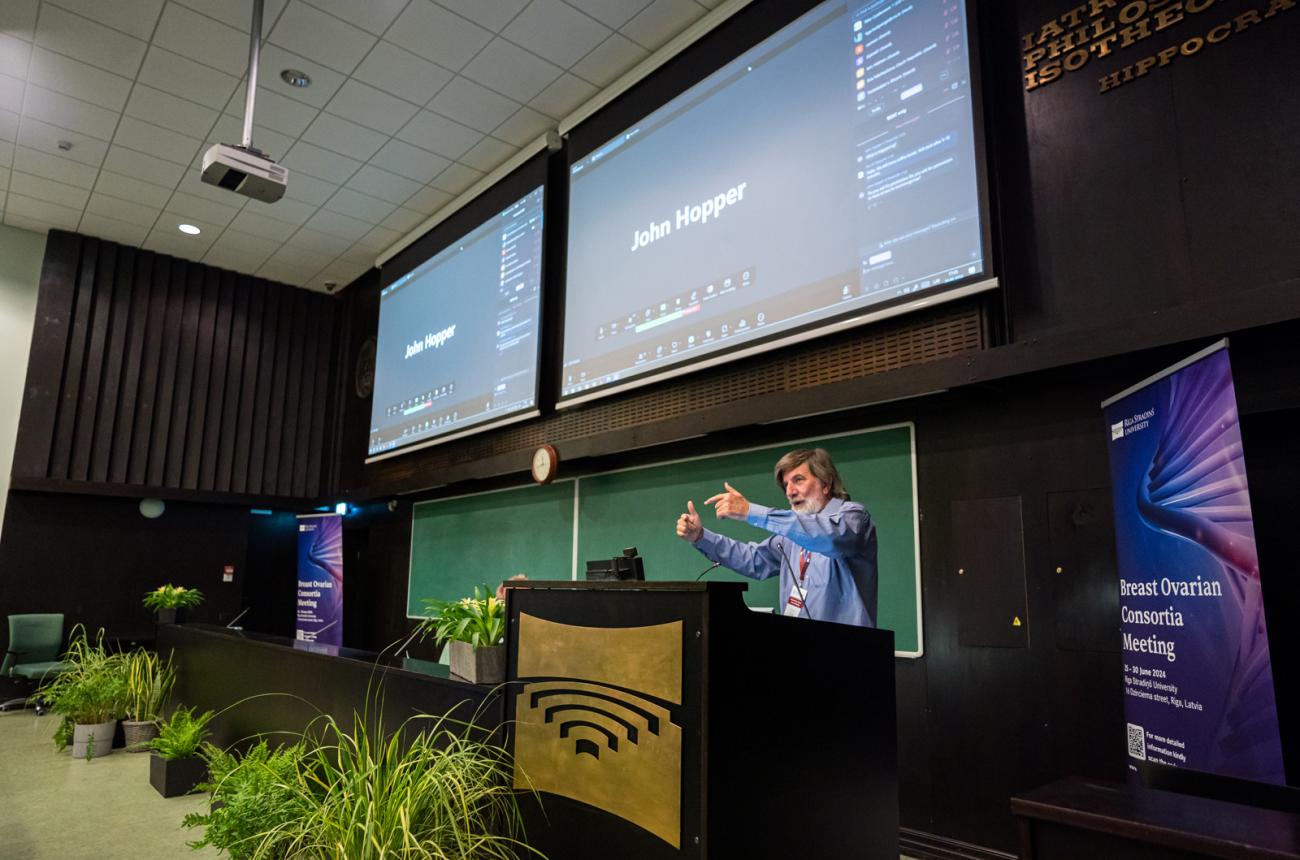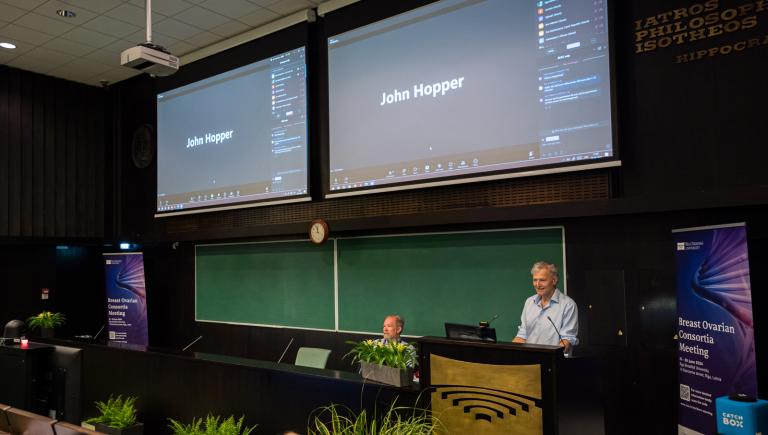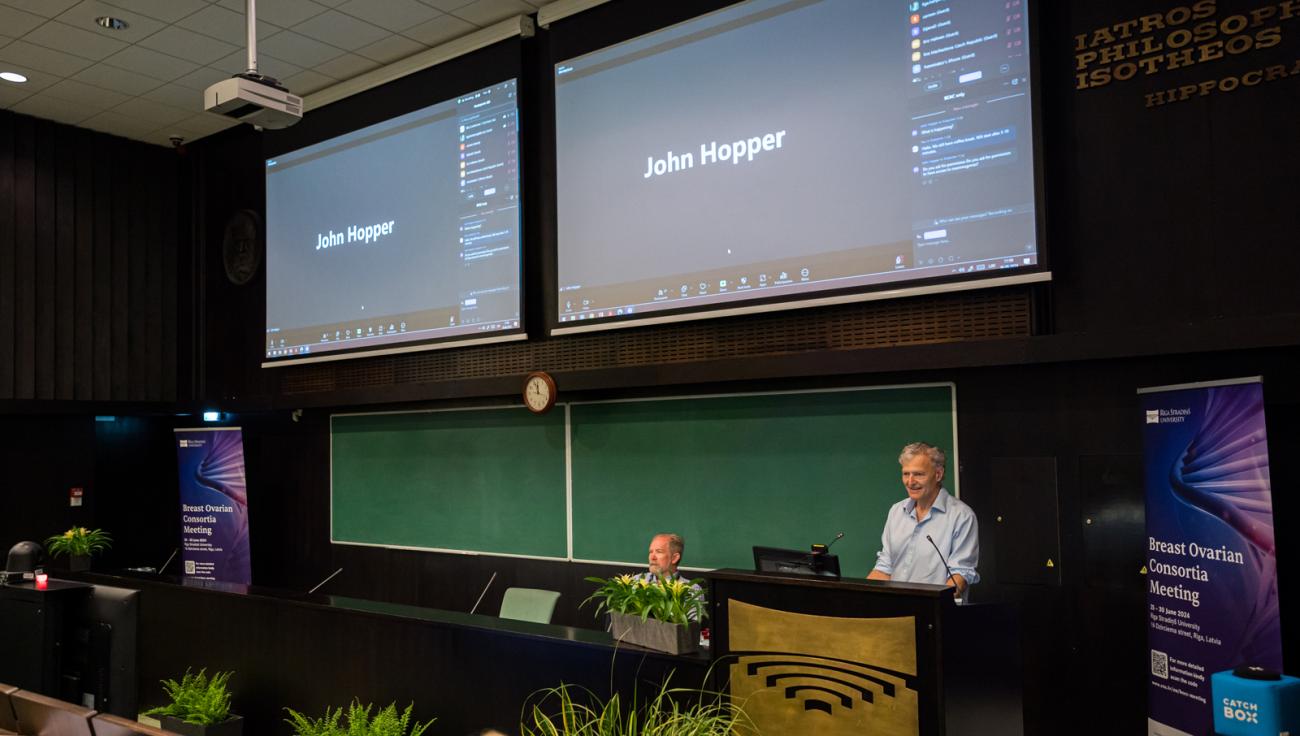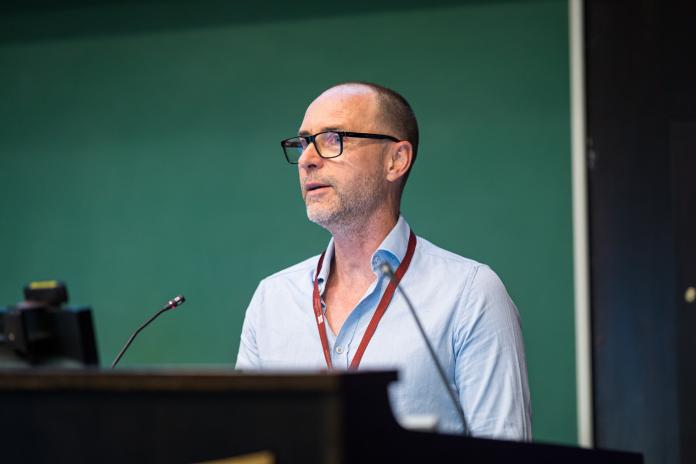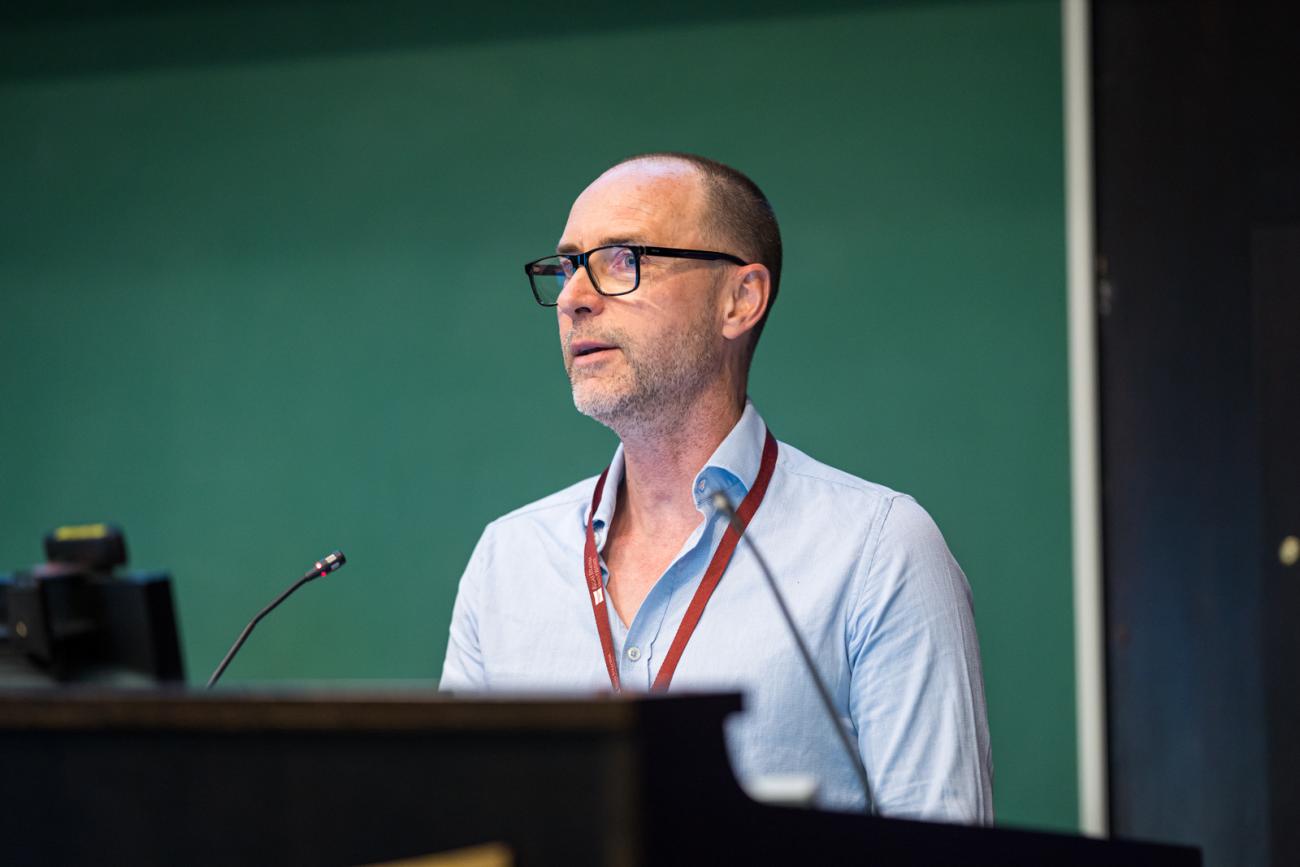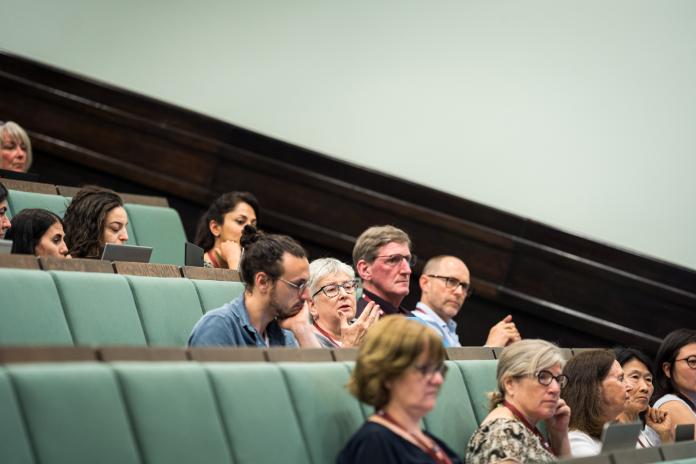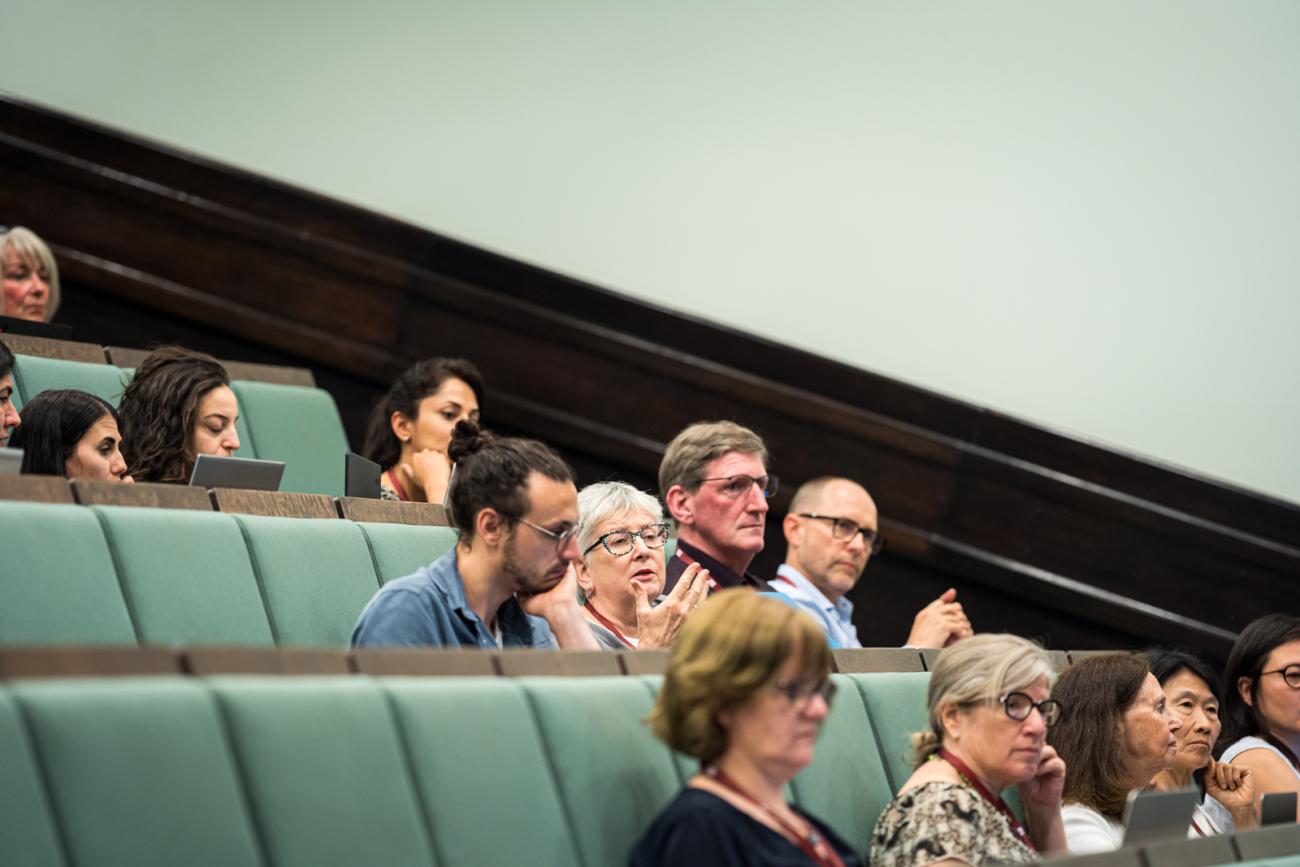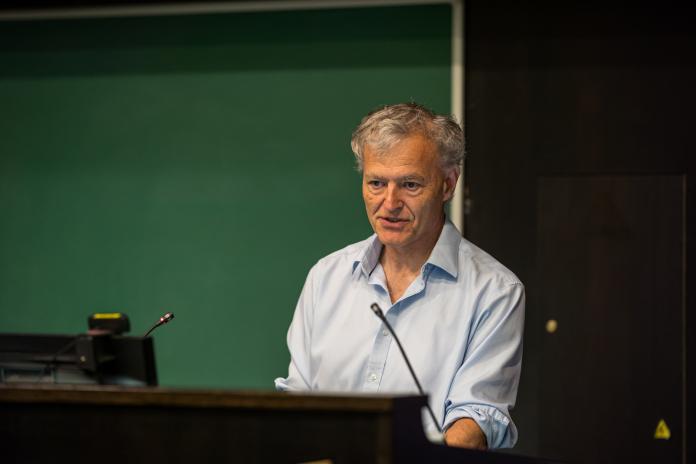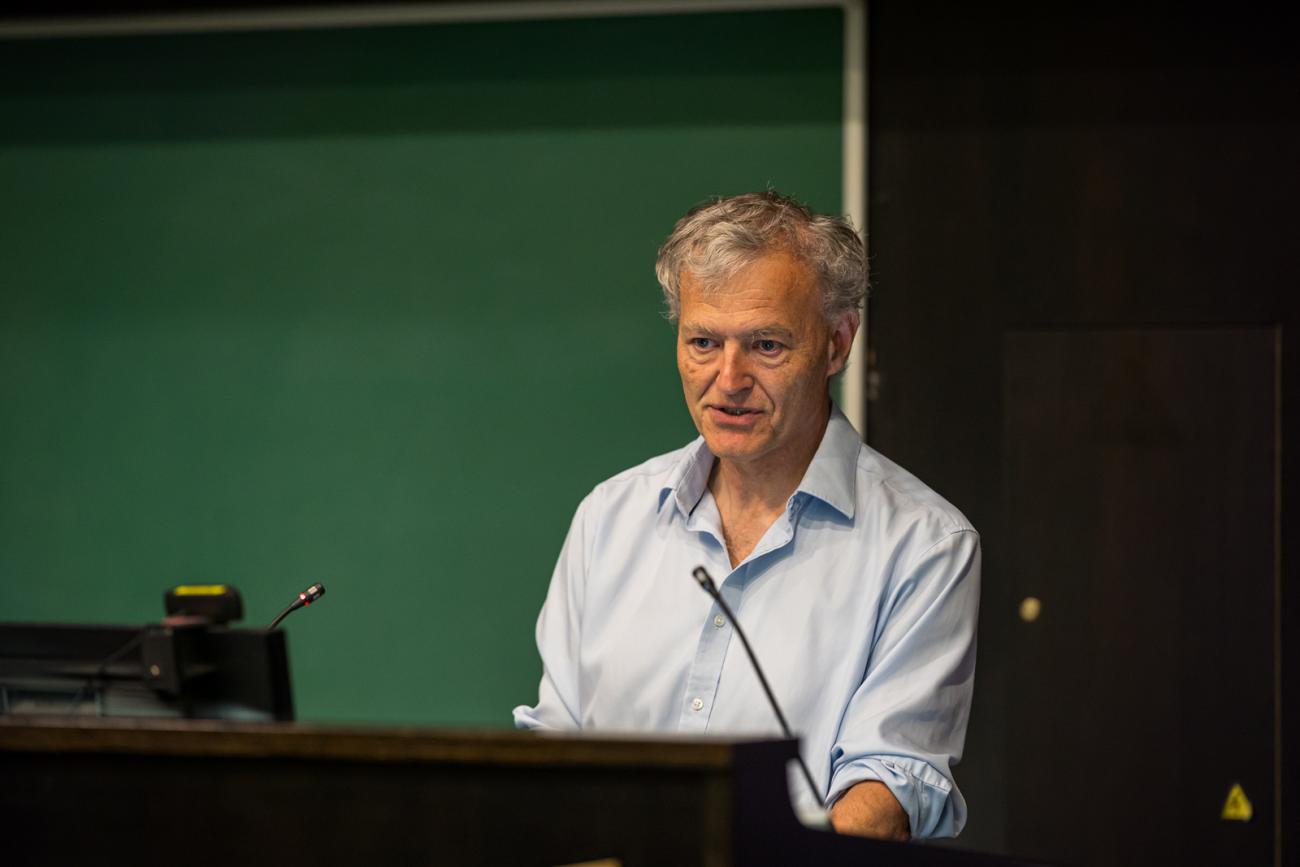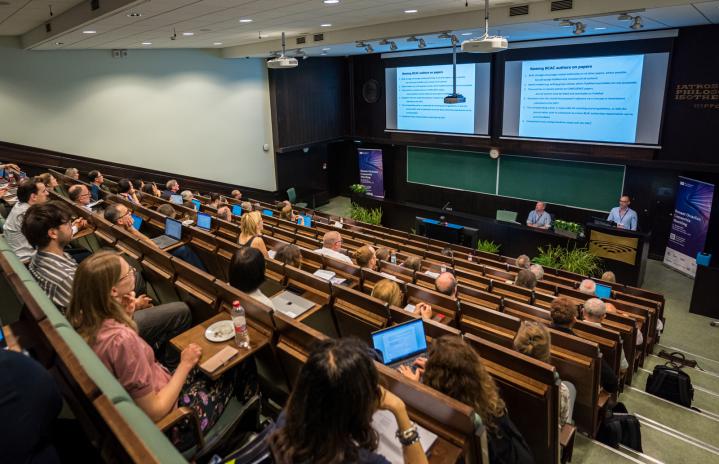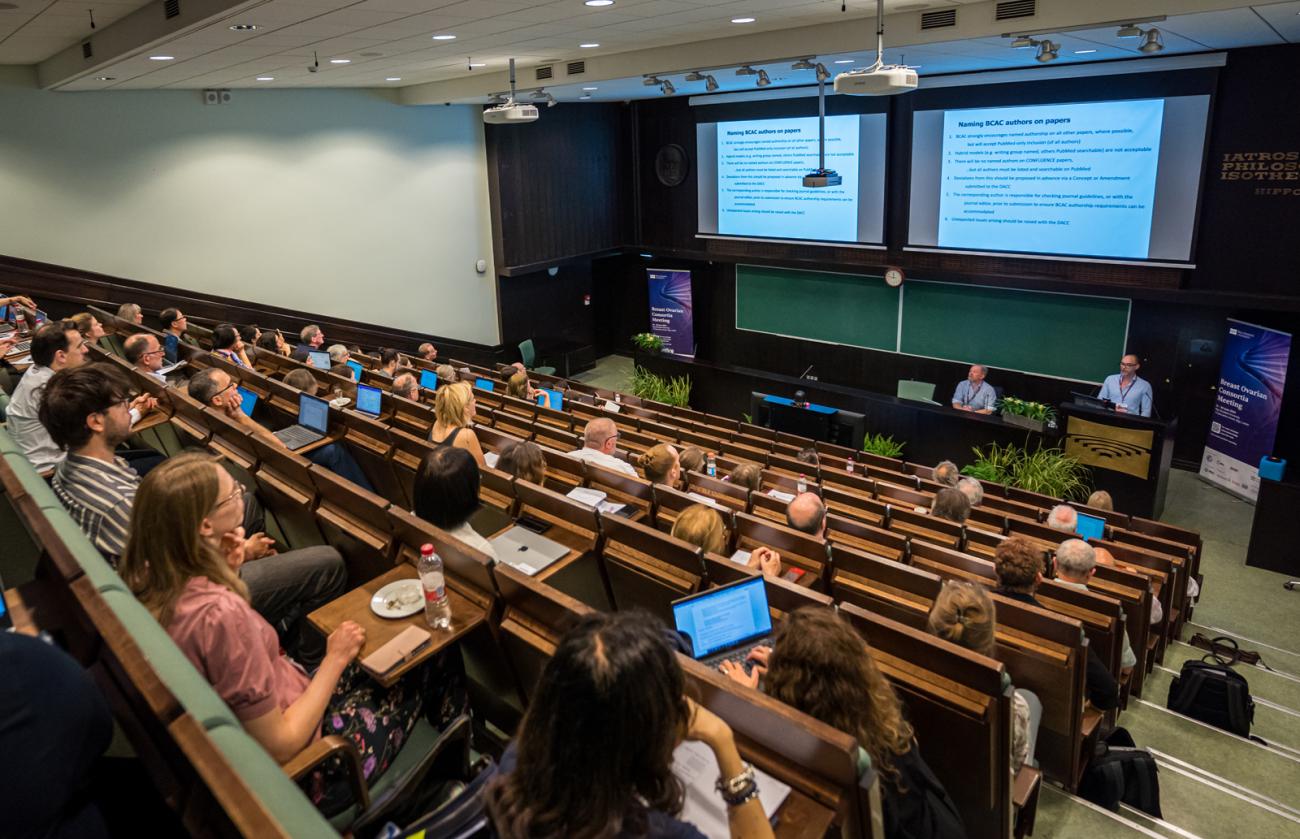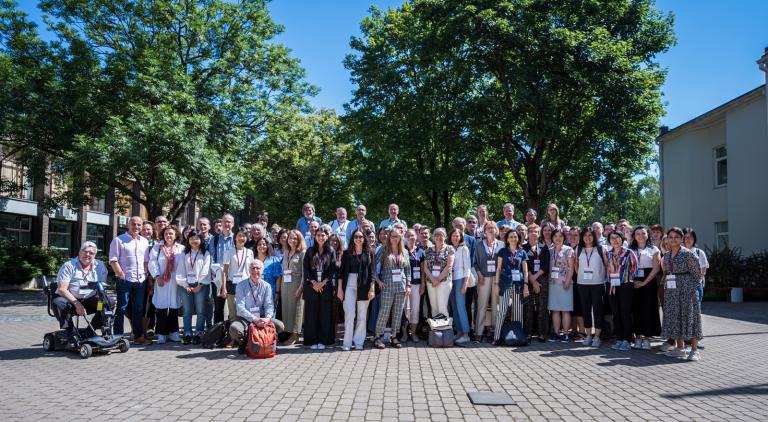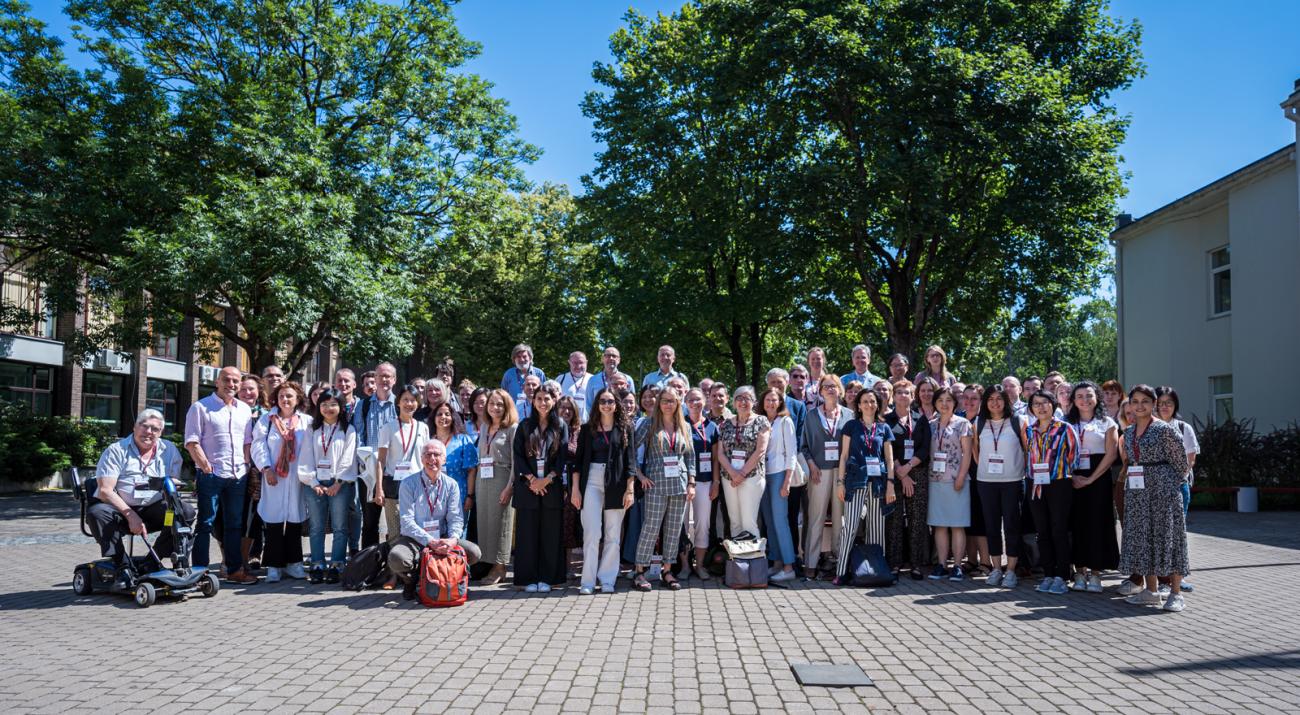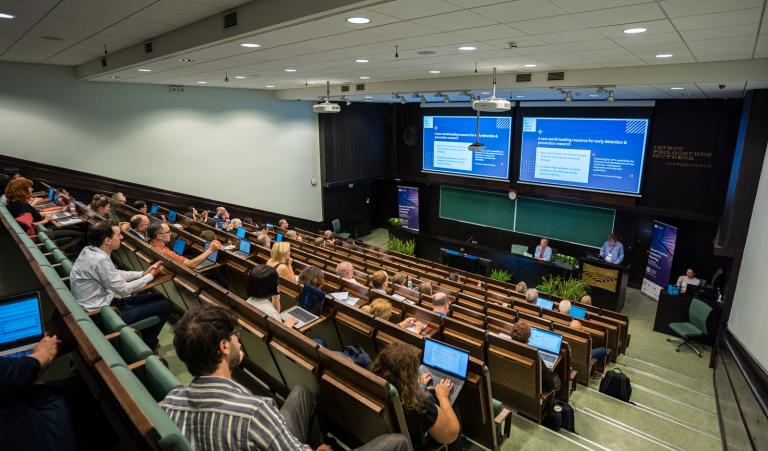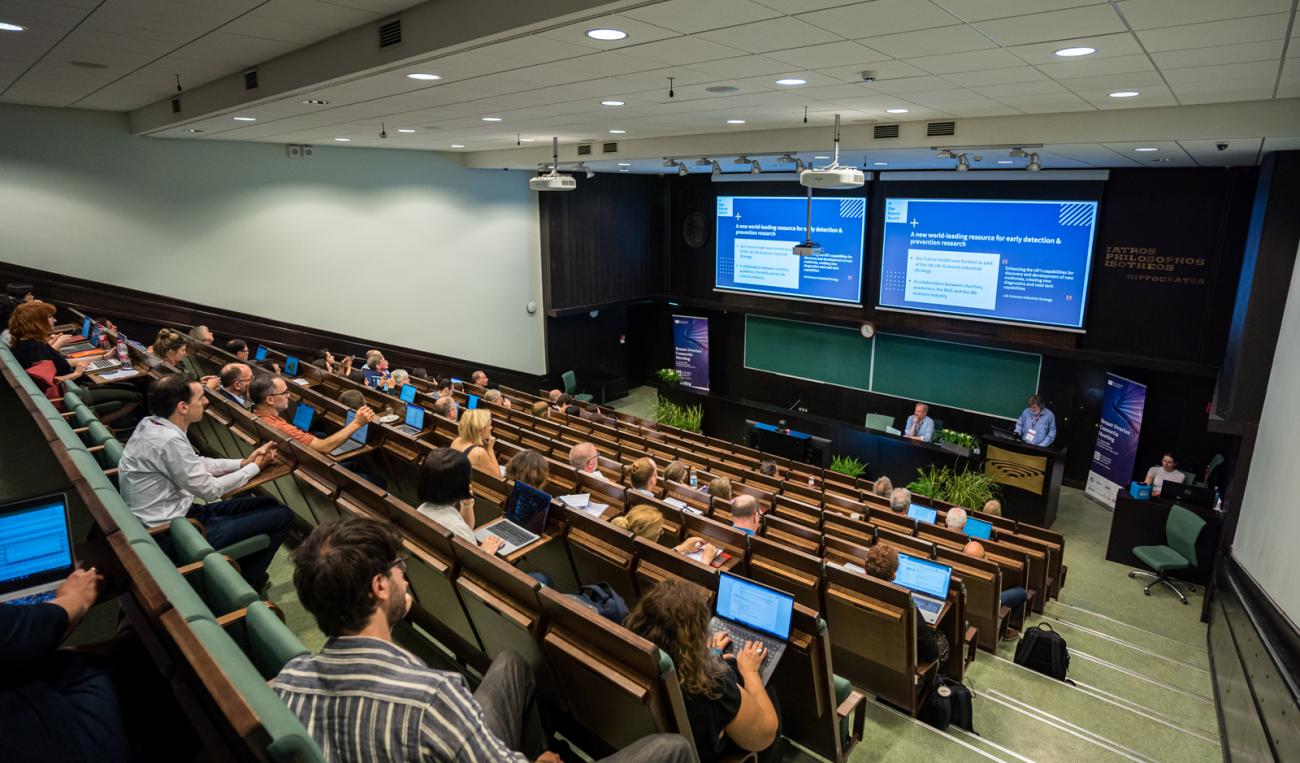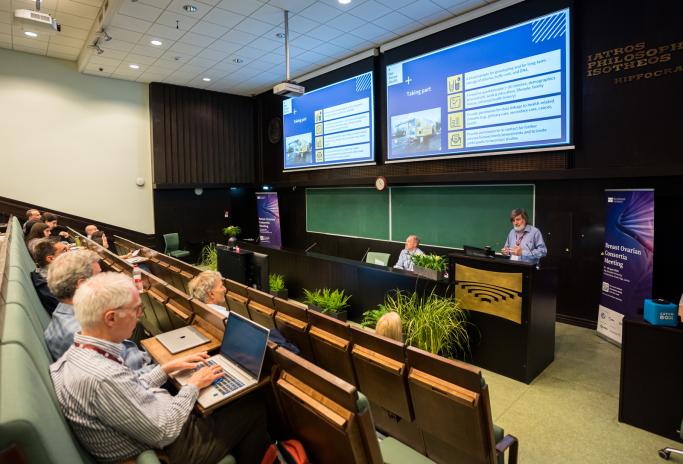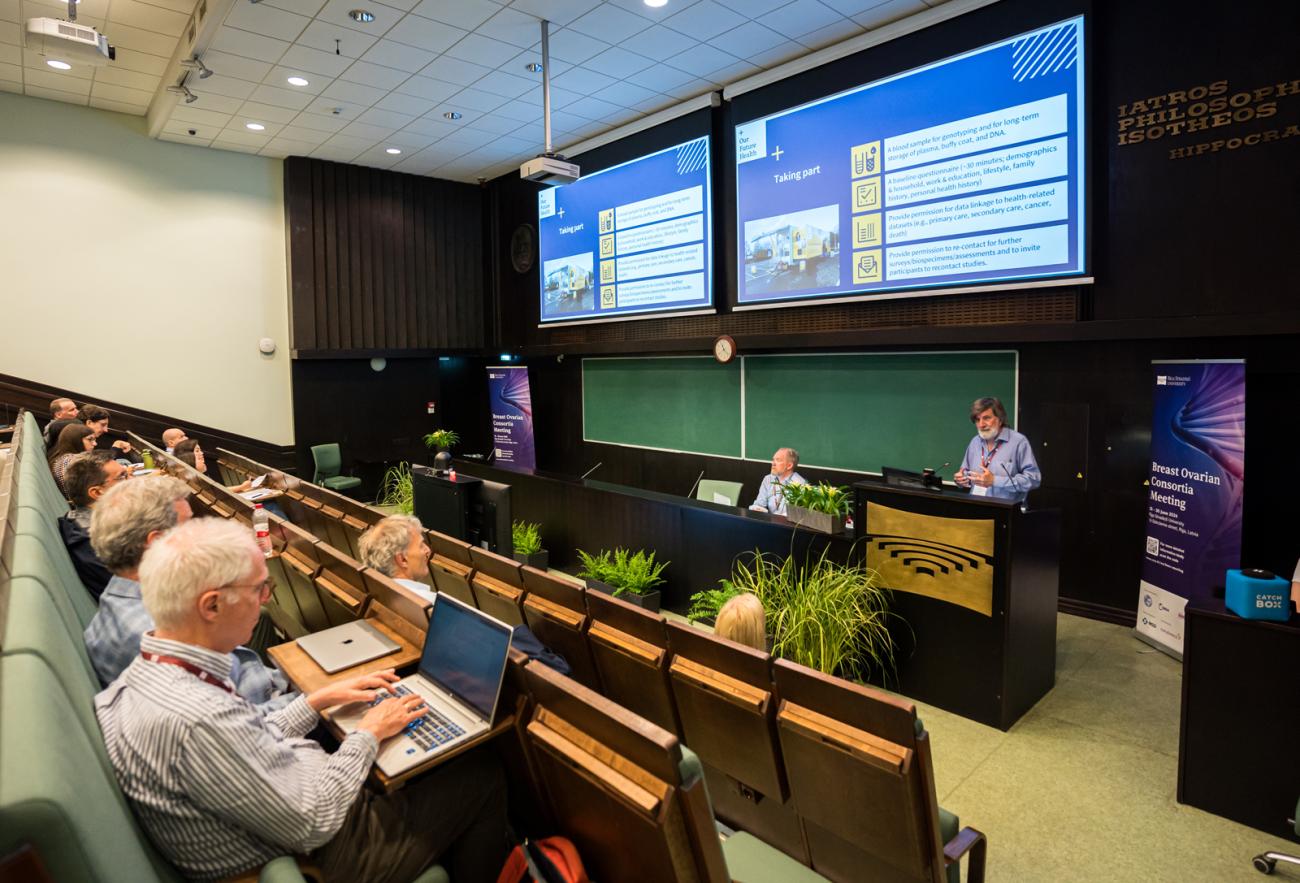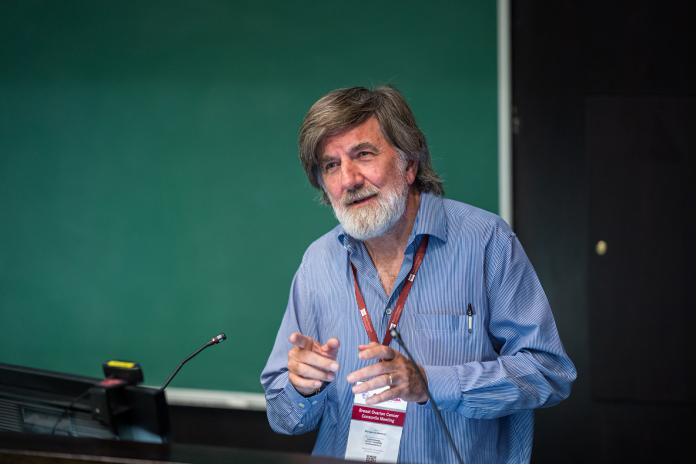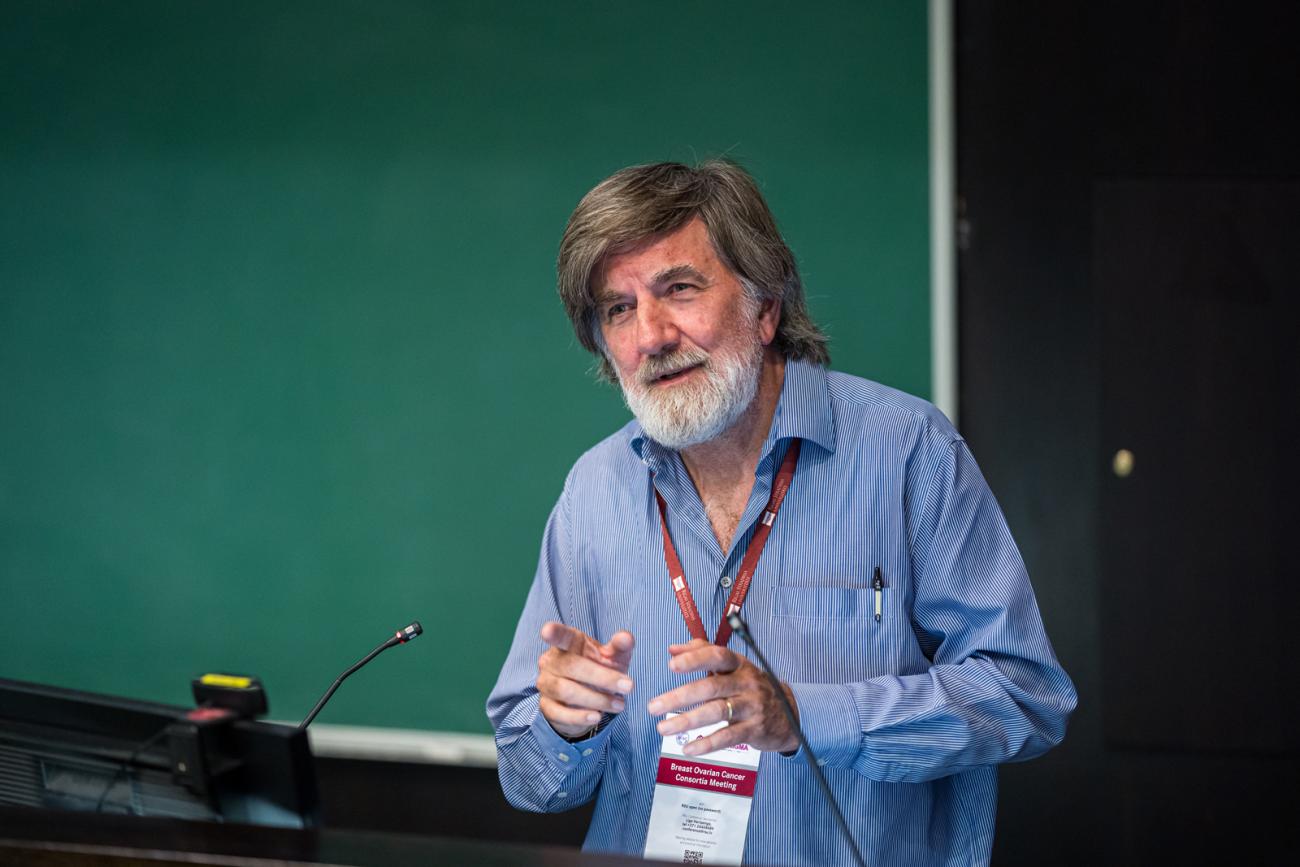RSU welcomes researchers from 36 countries for important breast and ovarian cancer consortium meeting
From 25 to 30 June, Rīga Stradiņš University (RSU) is playing host to a major international meeting of three consortia dedicated to breast and ovarian cancer research: CIMBA (The Consortium of Investigators of Modifiers of BRCA1/2), BCAC (The Breast Cancer Association Consortium), and ENIGMA (Evidence-based Network for the Interpretation of Germline Mutant Alleles). The event has attracted over 270 participants from 36 countries and is focused on exploring the risk factors for these cancers, with the aim of enhancing understanding, prevention, and diagnosis.
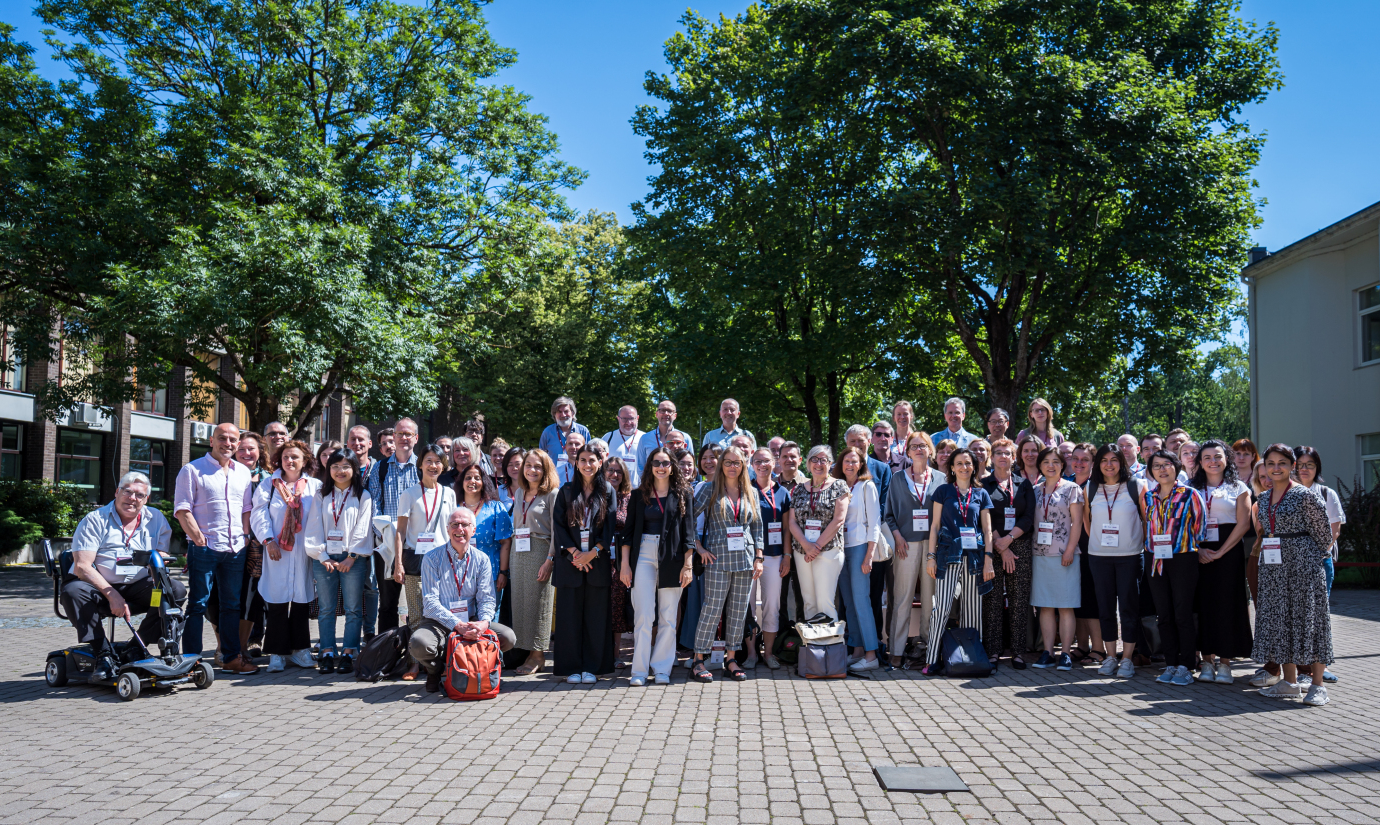
Participants in the RSU courtyard
Held annually in different countries for the past 20 years, these meetings are crucial for advancing global collaboration in cancer research. This year, the RSU Institute of Oncology and Molecular Genetics, a key player in breast and ovarian cancer research in Latvia, is the host. The institute has recently launched a pilot project for genetic screening of hereditary breast and ovarian cancer in the Latvian population.
Prof. Arvīds Irmejs, Director of the Institute, and Prof. Zanda Daneberga, Deputy Director, emphasised the importance of regular meetings for networking, exchanging experiences, and forming new collaborations, which ultimately improve cancer screening and care in Latvia. ‘Latvian data is included in the consortium's global database, allowing us to identify specific genetic traits in our population and draw important conclusions. With a database of over half a million samples from breast cancer patients and healthy individuals worldwide, we can find more precise diagnostic methods to assess patients' oncological risk, which is crucial for improving cancer prevention, diagnosis, and treatment.’
Prof. Douglas Easton from the University of Cambridge highlighted the value of the conference: ‘The BCAC consortium brings together groups from around the world interested in breast cancer genetics. We now have data on several hundred thousand people, which enables us to study genetic differences related to breast cancer and how they can predict risk.
International collaboration is essential for this, as no single study could provide enough data.’
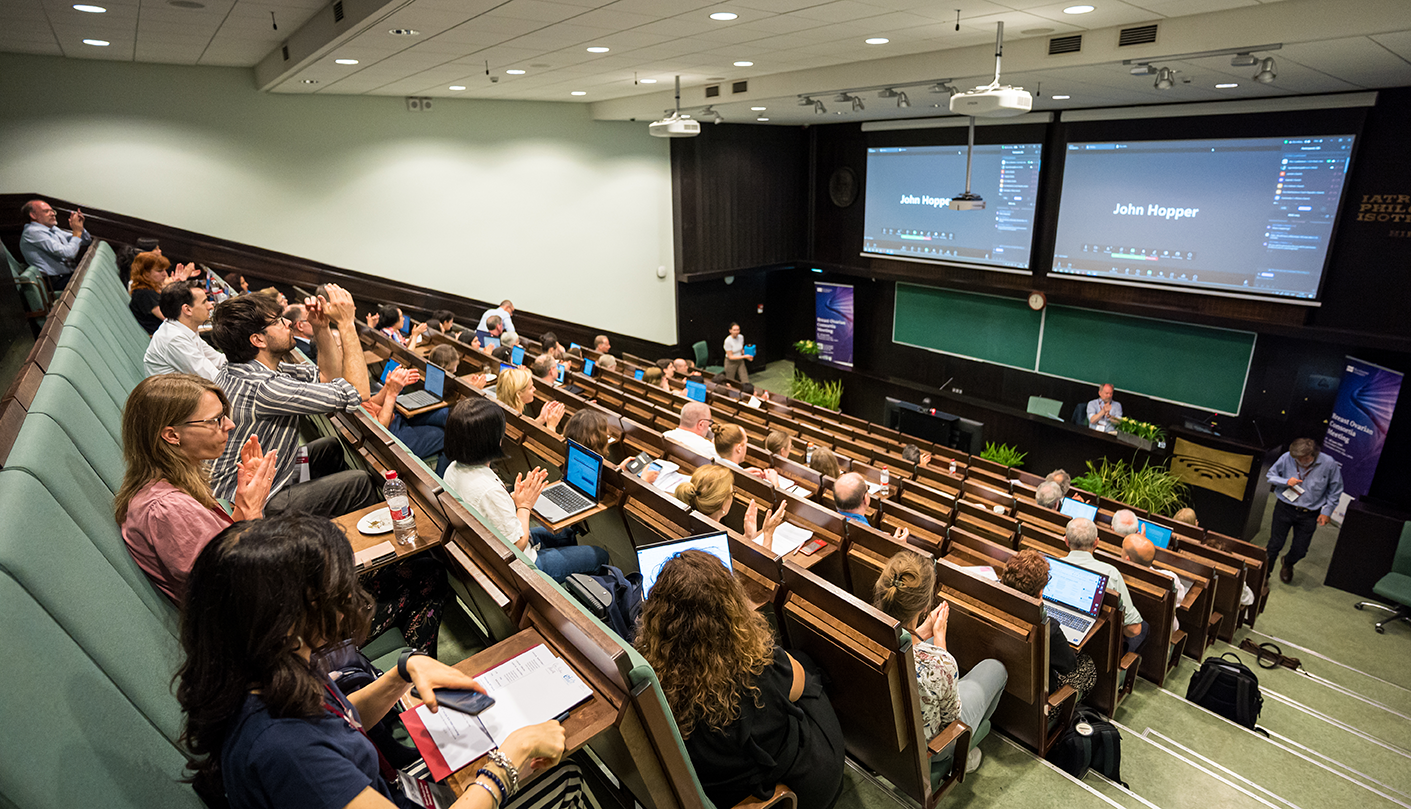
Presentation in the RSU Hippocrates lecture hall
The professor goes on to explain the practical implications of their research: 'We can put this information into risk models to predict individual risks. While much of this is still at the research stage, we hope to see a future where someone concerned about their health can go to their doctor to determine their risk level for a breast or ovarian cancer, helping them decide on appropriate screenings. Additionally, understanding these genetic influences can lead to new drug targets and treatment methods.’
Prof. Georgia Chenevix-Trench from the Queensland Institute for Medical Research who leads the CIMBA consortium, shared her experience: ‘The organisation here in Riga is perfect, and there's always fantastic new science at these meetings.
Participants never present published work, so the content is very fresh and confidential. These meetings started about 20 years ago when we realised that working together and sharing information was far more powerful than working in silos.’
Prof. Chenevix-Trench also discussed the practical outcomes of their research: ‘In recent years, we've started presenting data from clinical trials that have introduced more personalised breast cancer risk predictions in different ways. One study from Denmark explored giving women at low risk the choice to reduce the frequency of mammographic screenings that could in turn save money to increase screenings for those at higher risk. This approach helps people make informed decisions about their health.’
Prof. Amanda Spurdle from QIMR Berghofer Medical Research Institute and head of the ENIGMA consortium, elaborated on the benefits of these meetings: ‘These larger meetings encourage face-to-face discussions, fostering new collaborations and mentoring opportunities. Despite the challenges of travel, especially since COVID, the in-person interactions during coffee breaks, lunches, and dinners are invaluable.’
Prof. Spurdle highlighted the relevance of their work to the general public: ‘ENIGMA provides information used for direct risk and patient management.
We've worked to standardise terminology so clinicians can comfortably use our findings and communicate them effectively to patients.
We also collaborate closely with The BRCA Exchange website, which has a patient engagement group that helps us evaluate and understand how information is presented and received.’
The RSU-hosted meeting underscores the vital role of international cooperation in cancer research, driving forward the quest for improved understanding, prevention, and treatment of breast and ovarian cancers.
Related news
 Teaching future cardiologists: insights from Dr. Philipp at RSU’s Stade BranchFor Students, International Cooperation, Stade
Teaching future cardiologists: insights from Dr. Philipp at RSU’s Stade BranchFor Students, International Cooperation, Stade